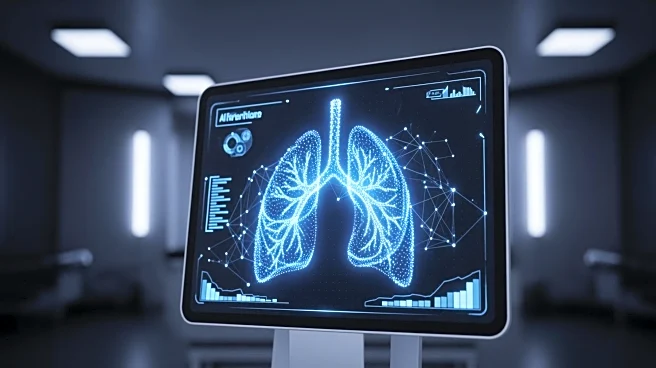Rapid Read • 7 min read
Recent studies have highlighted the potential of mesenchymal stem cells (MSCs) in treating graft-versus-host disease (GVHD), a serious complication following allogeneic hematopoietic stem cell transplantation. GVHD occurs when donor T lymphocytes attack the recipient's organs, affecting the gastrointestinal tract, liver, lungs, and skin. MSCs, known for their immune-modulating properties, are being explored as a cell-based therapy to manage GVHD. The FDA has approved a novel GVHD therapy utilizing bone marrow-derived MSCs (BM-MSCs), although the exact therapeutic mechanism remains unclear. Research indicates that MSCs can induce regulatory T cell generation, limit lymphocyte activation, and transform macrophages into anti-inflammatory phenotypes, thereby reducing the severity of acute GVHD. Studies have shown that MSCs can increase the production of inducible nitric oxide synthase, inhibit T-cell proliferation, and enhance immune suppression.
AD
The use of MSCs in treating GVHD represents a promising advancement in cell-based therapies, offering potential benefits over traditional treatments like glucocorticoids and immunosuppressants, which can lead to drug resistance and adverse effects. MSCs' ability to modulate immune responses and promote tissue repair could significantly improve outcomes for patients suffering from GVHD, reducing the risk of transplant failure and infection. This approach may also pave the way for broader applications of MSCs in treating other immune-mediated inflammatory diseases, potentially transforming therapeutic strategies in regenerative medicine and immunology.
The exploration of MSCs in GVHD treatment raises important ethical and regulatory considerations, particularly regarding the sourcing and manipulation of stem cells. As research progresses, it will be crucial to address safety concerns and establish standardized protocols for MSC therapy. Additionally, the long-term implications of MSC treatment on immune system function and organ health warrant further investigation. The success of MSCs in GVHD could stimulate interest in stem cell therapies for other conditions, potentially leading to shifts in medical practice and patient care paradigms.
AD
More Stories You Might Enjoy











